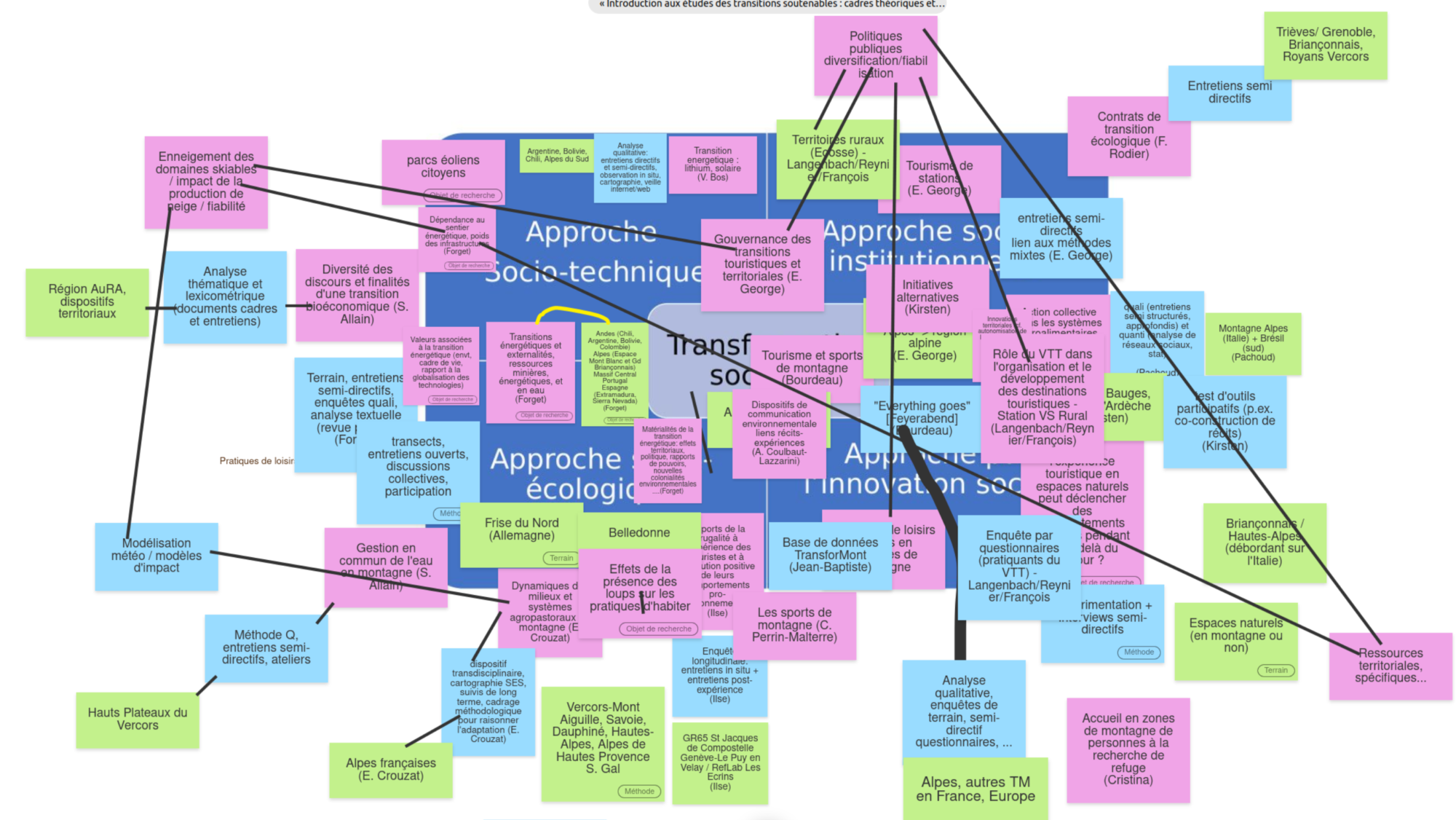Labex life
Transition in all its forms

On April 8, 2021, the community of Labex ITTEM researchers examined the notion of “transition”, taking the time to introspect and define its contours through the prism of their own work. A task as arduous as it is indispensable at a time when the concept is being bandied about from all sides.
Transition is everywhere: research, political discourse, institutional publications, citizen initiatives… Initially a militant concept, it has now made its way into the political sphere, supplanting the long-defunct concept of sustainable development. Initially, it suggested an in-depth societal transformation to meet global challenges. But if many claim to be part of it, what is transition really all about? What does the abundant scientific literature on the subject have to say?
Drawing on their work in their respective disciplines, some thirty researchers in the human and social sciences at Labex ITTEM have attempted to define its various meanings. Starting with a presentation by Kirsten Koop (Pacte) and Carine Pachoud (Labex post-doctoral fellow), they reviewed the four main conceptual approaches used by scientists to address the issue of transition. Just so you understand what we’re talking about.
Transition in theory
- The “socio-technical” approach, initially the most conventional and still the dominant one, looks at transition from the angle of technological innovations, such as the transition from the use of natural snow in resorts to the use of artificial snow. Or, in the context of the energy transition, the switch from fossil fuels to renewable energies requiring the use of other resources.
- The “socio-ecological” approach to transition focuses on the consequences of transforming the interactions between humans and their environment. For example, how changes in pastoral practices can help to adapt to climatic hazards.
- Since the 2000s, the “socio-institutional” approach has involved thinking about transition in terms of public policy. In this “transition management” perspective, transition scenarios are tested through the cooperation of various stakeholders. This is the case when local authorities cooperate with researchers and local players on the issue of transition for ski resorts, or when a PDO is set up for a mountain cheese.
- More recently, another approach to transition has been to take an interest in initiatives that come directly from civil society, or “social innovations”, particularly when public policies or companies fail to meet their expectations. For example, a citizens’ collective that sets up a farmers’ market to compensate for a lack of organic or local produce.
And in practice?
Following this presentation, Emmanuelle George (Lessem) – whose work focuses on mountain tourism – explained how her research on ski resorts (see Tandem project), faced with the need to adapt in the face of climate change, fits in with these different approaches. In fact, several of these approaches are used, as illustrated by the following examples: the contribution of artificial snow (socio-technical approach); support for local authorities on issues of governance and diversification (socio-institutional approach); tourism diversification and enhancement of environmental assets (socio-ecological approach).
All participants then used a collaborative computer tool to situate their research work according to these approaches. The resulting map shows that research often borrows from several theoretical approaches, and that the social innovation approach – despite its unconventionality – seems to predominate within Labex ITTEM. Although not compartmentalized, these approaches have the merit of providing a framework for understanding transitions.
What’s next?
This day of reflection and exchange was the first stage in a series of three seminars devoted to transition. It laid the foundations for developing a shared vision. Between now and the end of June, Labex members will be meeting again to discuss more concretely the participatory methods and forms of collaboration with local players implemented within their respective projects. The question of transitions in mountain areas is at the heart of the Labex ITTEM program.
